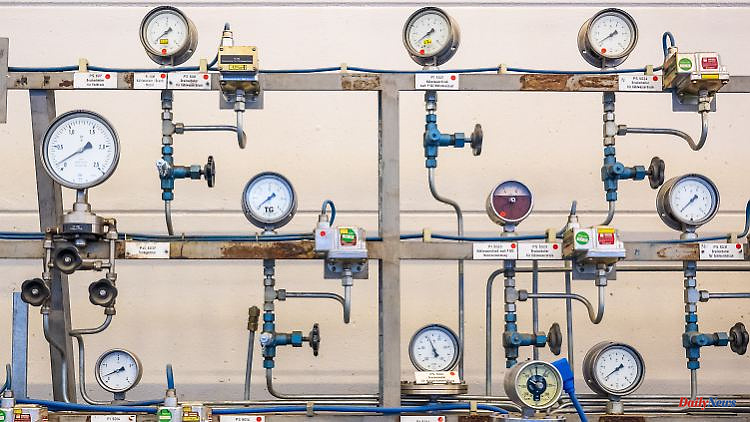What will become of Germany's industry? It will be, says Economics Minister Habeck. He announces industrial policy measures for the coming year. Above all, an answer to a gigantic support program in the USA must be found.
Federal Economics Minister Robert Habeck has announced a "robust response" by the European Union to the US inflation law with investments in climate protection worth billions. The Green politician said at an industry conference in Berlin that Europe must do its homework. The aim is to create investment conditions more quickly. Habeck spoke of a future plan for industry in Europe. The US inflation control law provides for billions in investments in climate protection. Subsidies and tax credits are tied to companies using US products or manufacturing in the US.
Habeck said Americans have decided to build the future economy with a major investment program during a period of high inflation. The lead markets of the future would be green markets. But there is still a "dark side", according to Habeck. Regulations that must be produced in America are not compatible with the rules of the World Trade Organization WTO. There must be a European plan parallel to the talks with the USA. "We're talking about weeks," said Habeck.
The minister said that next year will be dominated by industrial policy. It is about securing the location and about framework conditions that enable industrial companies to stay in Germany and produce here. Habeck warned against badmouthing Germany as a location and "delightfully describing the decline". The federal government will not let the industrial location in Germany go to waste. "We have had some successes under the most difficult conditions," stressed Habeck.
Industry president Siegfried Russwurm said the risk of companies leaving the company was real. He referred to the high energy costs in an international comparison. This is a "handicap". "In the transformation, it's even more important to understand that government money alone can't do it," Russwurm said.
According to the Federal Statistical Office, around every 60th German company had relocated business activities abroad even before the sharp rise in energy costs. 1.6 percent of companies did this from 2018 to 2020 - "mainly because of cost advantages", as the Federal Statistical Office reported in a study. 64 percent relocated the production of goods, marketing, sales and customer service or research and development completely or partially from Germany to other parts within or outside their group of companies abroad.
The chairman of IG Metall, Jörg Hofmann, demanded that Germany "go on the offensive" in terms of industrial policy. "We need an offensive in industrial policy right now after years of crises," he said. The central question is: "Will we succeed in becoming the leading market in the field of renewable energies and also the leading manufacturer".












